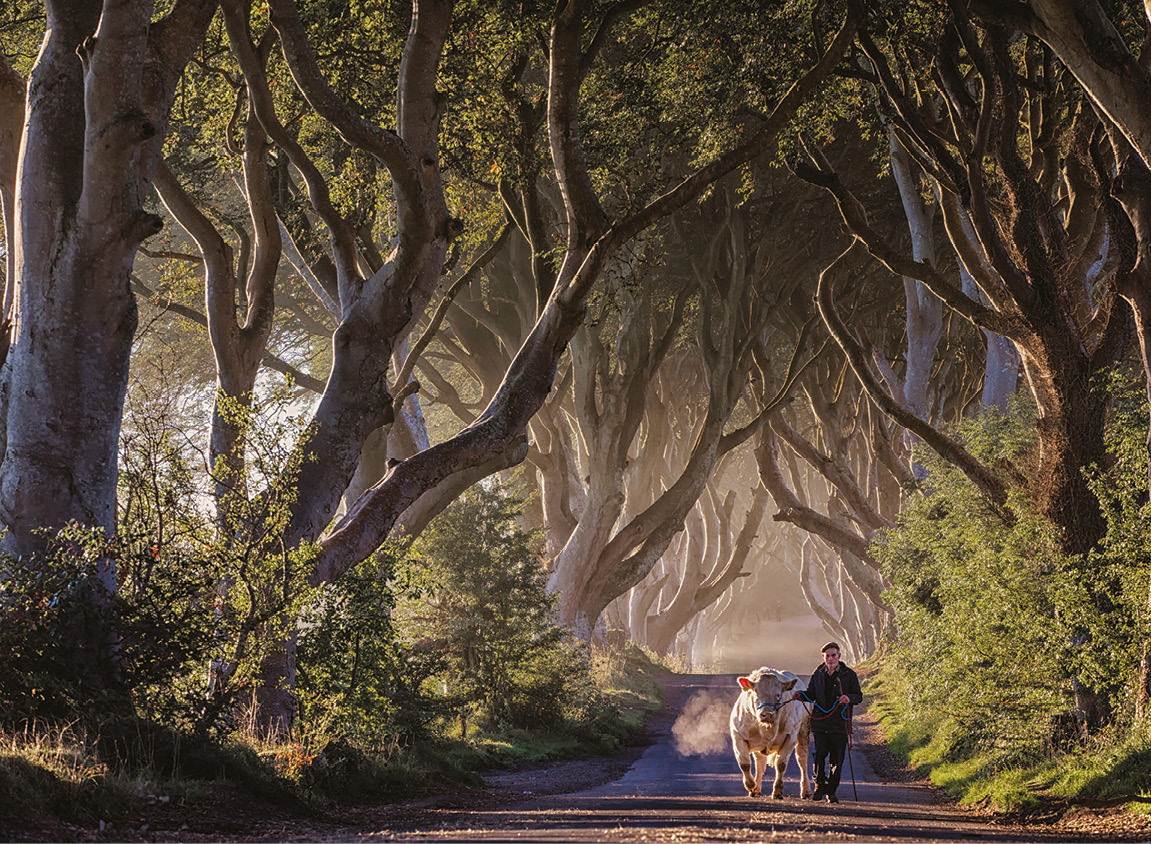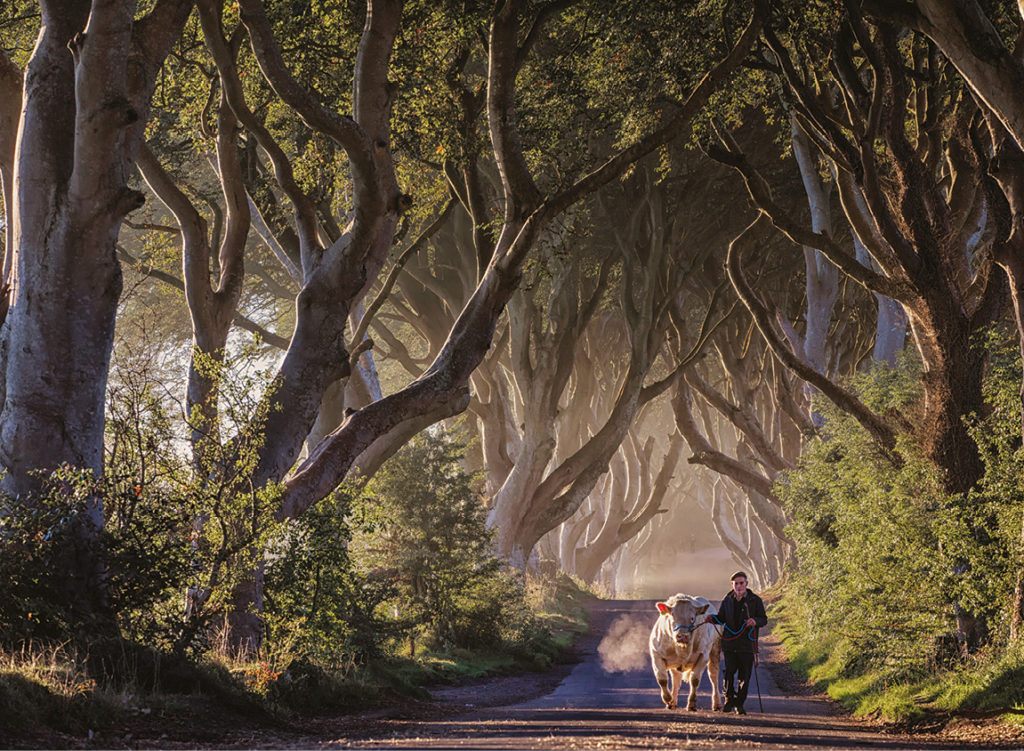Screen tourism


Following the announcement of the final series of Game of Thrones, a major part of screen tourism revenue in Northern Ireland, David Whelan talks with Film Studies lecturer at Queen’s University Belfast, Stefano Baschiera, about the success and potential growth for the sector.
Although by no means the only major piece of filming commissioned in Northern Ireland, Game of Thrones is considered the region’s most critical in terms of putting Northern Ireland on the world map as a production location.
Its huge fan base has set it apart from other notable productions filmed in Northern Ireland such as Dracula Untold, Your Highness and hit drama The Fall, with huge potential recognised in growing the tourism sector by attracting fans of the production.
Although the popularity of Game of Thrones went largely underestimated initially, the value of correctly marketing such a successful product can be evidenced in the likes of Alnwick Castle in Northumberland, used as Hogwarts in the early Harry Potter films, which generated an estimated £4.3 million screen tourism spend in 2014. Bampton, the village used for Downtown Abbey has generated an estimated £2.7 million and more nationally, Norway and New Zealand have witnessed huge international spend increase as a result of their association with Frozen and The Lord of the Rings, respectively.
While Northern Ireland has sought to capitalise on its association with Game of Thrones and other major productions, it does not have a strategy specifically aimed at screen tourism. In 2016, Tourism NI commissioned Olsberg SPI, following on from work undertaken for Creative England in 2014, to study the value of screen tourism in Northern Ireland. Due to be published later in the year, the report has yet to be released.

Stefano Baschiera
However, a summary of the key findings has been released to agendaNi from Tourism NI. The findings state:
• awareness of the region is high and a “significant” number of tourists have travelled to the area who would not have done so without its screen links;
• a conservative estimate of the value of screen tourism per annum is £18 million. This figure is based on the estimate that 55,000 extra people are travelling to Northern Ireland every year with screen content as their main reason for travel;
• if screen tourism continues on its current trajectory over the next two years, there is the potential to grow the market to £33 million, with opportunity for further product development and merchandise; and
• outside of “international core screen tourists” a potential market of 167,000 visitors are attracted to Northern Ireland due to its links with film or television drama.
“Northern Ireland does have advantages that other countries do not and as a result, where previously many people in Northern Ireland involved in the film industry had to seek work in London and elsewhere, there are now more and more people being retained in a thriving industry.”
Stefano Baschiera believes that the current success of Northern Ireland in attracting major productions, and as a result harbouring of screen tourism, are rooted in the attraction of major investment for the filming of City of Ember back in 2007.
“Previous to this Belfast was largely used for filming because of its own storyline and often it would have film crews coming in from places like England, for example, for one day shooting and leaving again. This relationship meant that Northern Ireland’s film industry got no knowledge-transfer benefit and there was next to no significant expenditure increase from them being there,” he says.
“With City of Ember this changed, the large inward investment utilised the film studio space available at Titanic. On one hand, it helped showcase the advantages of Northern Ireland as a production destination with its variety and closeness of infrastructure and the fact that it was English-speaking. On the other hand, it also helped highlight that Northern Ireland could logistically handle such a large production and that the skillset existed.”
Baschiera agrees that the lack of hard data makes analysing the benefits of investments in the sector against the costs difficult but believes that some of the benefits are clear.
“Not every production will provide the same level of interest and Northern Ireland must be able to capitalise and properly market those that do.”

Filming of upcoming feature film Trautmann taking place in Belfast
He adds: “A generalisation is to look at what Northern Ireland production offered 10 years ago and what is on offer now. The ability to host, manage and execute productions of such volume is a great skillset when selling Northern Ireland for future productions. Northern Ireland does not have the film industry legacy of other European countries but even from a university perspective, we have seen several former students undertaking seasonal work and training opportunities in the industry that may not previously have existed and that knowledge transfer will be crucial for constant improvement.
“Despite its legacy, Scotland has undoubtedly suffered because it does not have the dominant studio space offering that exists here. Northern Ireland does have advantages that other countries do not and as a result, where previously many people in Northern Ireland involved in the film industry had to seek work in London and elsewhere, there are now more and more people being retained in a thriving industry.”
Asked about sustainability, with fears raised over over-investment in products that retain relatively short shelf lives, Baschiera remains optimistic.
“I believe that the right things are in place for Northern Ireland to succeed in this sector even when Game of Thrones is completed. Currently, we have good infrastructure and experienced crews. The variety of locations offered in a short driving distance from Belfast will remain a strong attraction for every production. Moreover, our studio space, in terms of square metre, can compete with most countries in Europe and as a place Northern Ireland’s reputation for accommodation, food and drink etcetera has increased,” he says.
“However, there are challenges. Global competition exists and many other countries and regions will be competing to host future productions and screen tourists. Northern Ireland initially had a slightly delayed reaction to capitalising on the popularity of Game of Thrones from a touristic perspective, but now has a far greater offering. Globally people know that much of the production is set here. The association between Northern Ireland and GOT was also stressed by events like the Queen visiting ‘the iron throne’. However, not every production will provide the same level of interest and Northern Ireland must be able to capitalise and properly market those that do.”
Asked where Northern Ireland should be looking for further production and the whether there was the potential to create a home-grown production of similar magnitude, Baschiera believes the main focus should be put on competitiveness.
“With the changing production landscape, because of the likes of Amazon and Netflix, Northern Ireland has more opportunities to attract inwards investment and high end productions. The future challenges, however, consist in the involvement of private investment at national level in film production,” he says.
“I think fantasy/sci-fi suits Northern Ireland’s niche strengths best for big production. We can’t compete with the metropolitan offering of Europe’s biggest cities but we have the scenery, logistics and location to be a leading attraction. Evolving digital technology will be a key part of all future major productions and Northern Ireland must ensure that has the ability to innovate and skill in this area.”





